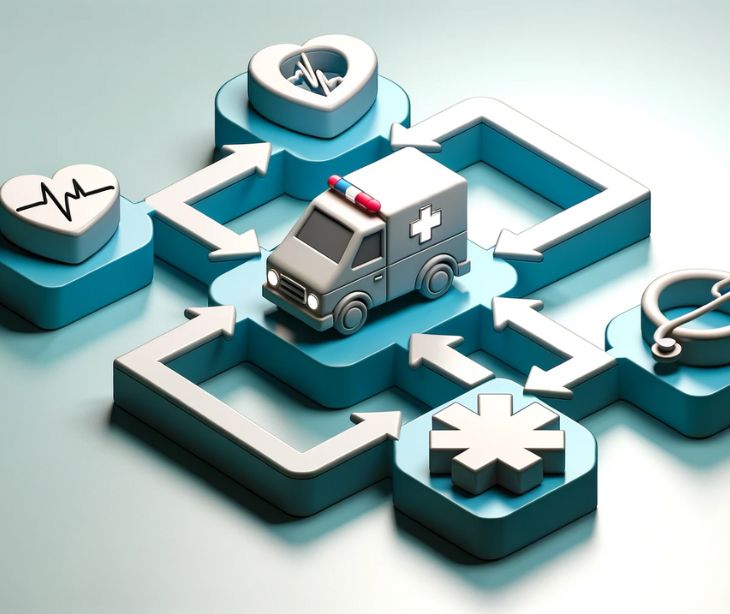
The primary difference between an Emergency Medical Technician (EMT) and Emergency Medical Services (EMS) lies in their scope and role within the field of emergency medicine.
EMS is the broader field encompassing all aspects of specialized emergency medical care provided from the scene of an emergency to the hospital. EMTs, on the other hand, are individual professionals who work within the EMS system.
HIPAA and emergency medical professionals
HIPAA requirements extend to all healthcare providers, including those in the EMS field. EMTs who handle patient information during their duties must adhere to HIPAA regulations. While the underlying HIPAA principles are the same, the extent to which these regulations apply may vary based on the specific roles and responsibilities within EMS and the scope of duties for EMTs, with more advanced EMS personnel and paramedics often having more extensive involvement with patient data. Nevertheless, both EMS and EMTs are legally bound to maintain the confidentiality and privacy of patient information in their care.
Violations that impact both
- Informed consent violations: Administering medical treatment without proper consent or using inappropriate methods for obtaining consent.
- Patient abandonment: Leaving a patient without proper care or ending treatment prematurely, known as abandonment.
- Data security breaches: Mishandling patient records, failing to secure electronic health records, or experiencing data.
- Social media misuse: Inappropriate use of social media, such as sharing patient information or engaging in unprofessional behavior online.
- Ethical violations: Violating ethical principles, such as those outlined by professional organizations.
See also: Does HIPAA apply to EMTs?
Strategies to safeguard against HIPAA violations
EMTs
- Practice disposal practices
- Access patient records ethically
- Exercise social media caution
- Report suspected violations
- Keep work and personal separate
EMSs
- Implement mobile device management to remotely monitor EMS workers
- Geo-fencing for devices meant for in-office use
- Privacy booths in vehicles
- Real-time audit logs
- Utilize secure communication services like HIPAA compliant email
See also: HIPAA violations for EMS workers
Ethical principles and guidelines for EMTs
The National Association of Emergency Medical Technicians's code of ethics emphasizes the commitment of EMS professionals to the preservation of life, the relief of suffering, and the promotion of health while maintaining compassion and respect for human dignity. EMS practitioners are bound to provide services based on the universal principles of care, devoid of discrimination based on nationality, race, creed, or socioeconomic status.
This is accompanied by the acknowledgment of how necessary it is for EMS workers to uphold legal compliance and participation in matters of legislation and regulation such as HIPAA.
Subscribe to Paubox Weekly
Every Friday we'll bring you the most important news from Paubox. Our aim is to make you smarter, faster.






